Ælfgif-who? provides short biographies of early medieval English women every two weeks. Click on the podcast player if you’d like to hear this newsletter read aloud in my appealing Yorkshire accent.
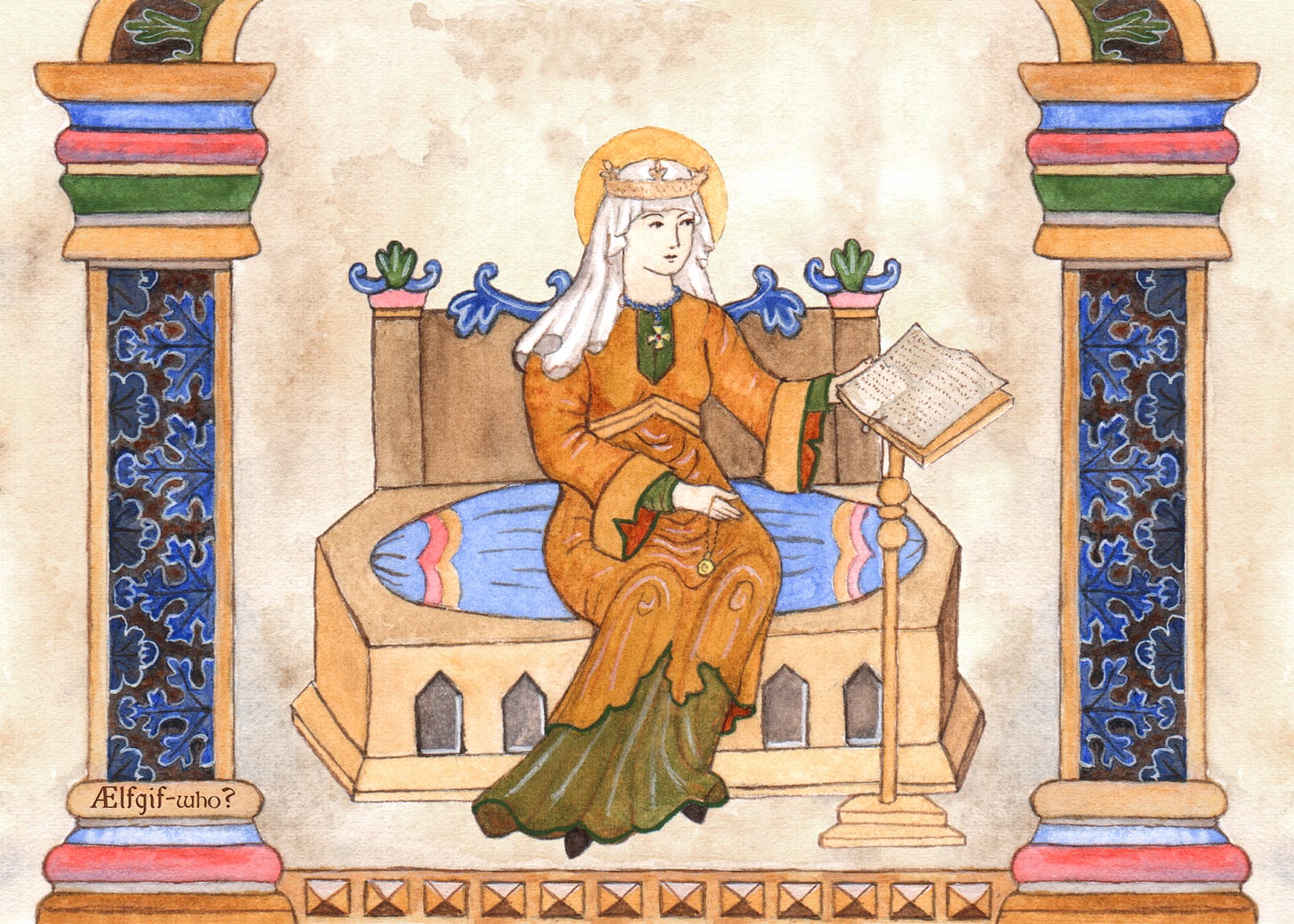
Bertha: A Christian Queen Instrumental in Converting her Kingdom
Bertha, a queen of Kent in the late sixth century, is known to us via two main contemporary sources. The first of these is Bede’s Ecclesiastical History, while the second is a letter written to her by Pope Gregory the Great. Both of these sources are concerned with the topic of the conversion of the English to Christianity, and so it is as a converting queen that Bertha is remembered.
Bede’s Ecclesiastical History describes the process of the conversion of the English political elites to Christianity. British inhabitants had been introduced to Christianity through the Roman Empire, and although it is not known how total conversion was, evidence suggests that some Britons were still practising Christianity in the fifth century when non-Christian central-European immigrants arrived in England. These immigrants, who according to Bede comprised of three ‘German peoples’ – Saxons, Angles, and Jutes – reshaped the culture of the politically dominant class, despite probably being vastly outnumbered by Britons already living in England. During the late sixth century and the seventh century Christian missionaries arrived to convert these political elites: Roman Christians converted in the southern kingdoms and Irish missionaries from Iona converted the Northumbrian royalty.
According to Bede, the first recorded missionary was Liudhard, who arrived in England in c. 580, accompanying Bertha, a Frankish princess who was to marry the non-Christian King Æthelberht of Kent. At this time, Bede tells us, the Kingdom of Kent was so large that its northern border was the river Humber. Bertha’s family, including her father the Merovingian King Charibert, had agreed to the marriage on the stipulation that Bertha would be permitted to practise her Christian faith, and so she brought Liudhard with her as her own priest.
In 597, missionaries sent by Pope Gregory, including the man who would come to be known as Saint Augustine of Canterbury, arrived on the Isle of Thanet. Bede explains that when the Gregorian mission landed, King Æthelberht already had some knowledge of Christianity because he had a Christian wife. The king permitted their stay there and went to meet them, though suspicious of their Christianity he refused to see them indoors for fear of their magic. Seeing that they meant no harm, he permitted them to stay in Canterbury and preach their religion. Bede mentions that the missionaries used an old Roman church, that Queen Bertha had used to pray in, to deliver their message. This church, which has since been rebuilt on the same site, is said to be the oldest church in the English-speaking world where Christian worship has taken place continuously since Bertha occupied it in 580.
Bede tells us that after much preaching, the missionaries successfully converted the king and he was baptised along with others from his kingdom. Bertha is not mentioned by Bede again, though our understanding of her role in the conversion can be supplemented with the letter written from Pope Gregory to Bertha in 601. Bede does not appear to be aware of this letter (at least he does not utilise its contents in his narrative). The letter begins by applauding Bertha for extending charity towards Augustine. After a flattering comparison between Bertha and Helen, the mother of Constantine, it follows:
…As a true Christian you should have already inclined the heart of our glorious son your spouse to follow the faith that you cherish for the salvation of his kingdom and his soul, so that both from him and through him by the conversion of the whole race worthy recompense might arise for you in heavenly joys.1
In this letter, Gregory is urging Bertha to convert her husband. Though in Bede’s account Bertha’s ultimate role in the conversion is never specified, it is clear that Pope Gregory sees a possible role for her in Æthelberht’s conversion and by extension the conversion of his kingdom. Gregory almost certainly has in his mind Paul’s first letter to Corinthians 7:14:
For the unbelieving husband is sanctified by the believing wife; and the unbelieving wife is sanctified by the believing husband: otherwise your children should be unclean; but now they are holy.
Gregory believed that Bertha had a religious imperative to encourage her husband to convert, and it is likely that Bertha took the message of this letter very seriously.
Bede’s primary motivation in his recounting of Kent’s conversion is to stress the importance of Gregory’s mission to England, and unfortunately not to tell us of Queen Bertha’s importance. Though Bede tells us little about Bertha’s role in the conversion of her husband or the kingdom to Christianity, reading between the lines of his narrative might reveal more about her influence.
We know that Æthelberht had to promise to make concessions to Christianity before he could even marry Bertha. We know that the earliest known Christian missionary arrived in Kent accompanying her. Bede implies that Æthelberht allowed the missionaries to stay in Thanet because he already had some familiarity with Christianity from his wife. We also know that it was Bertha’s own church that these missionaries used. A gold medal inscribed with ‘LEUDARDUS EP(iscopu)S’ survives from this period, thought to have been given by Liudhard to an early Christian convert in Kent. While Bede wanted to praise Pope Gregory’s mission, it is clear that Bertha and Liudhard’s presence in Kent had already laid important groundwork for the conversion.
In another of Pope Gregory’s letters to the kings of Burgundy and Austrasia, he remarks that he has learned that the English wish to be Christianised. Some historians have speculated that this means the Gregorian mission was initiated by the English themselves, and Gregory was merely responding to their request by sending Augustine to Kent. Given we know that Bertha was in correspondence with Gregory, it is possible that it was Bertha, with the help of Liudhard, who initiated this process, having already made inroads at the Kentish court. Far from the passive role granted to her by Bede, it is entirely feasible that the ‘Gregorian’ mission was actually a ‘Bertharian’ one.
Suggestions for further reading:
Bede’s Ecclesiastical History is our principal source on Bertha. There is a very good paperback edition which is excellent value: Bede’s Ecclesiastical History of the English People trans. Colgrave and Mynors (affiliate link).
Some interesting work on converting queens in Bede has been done by Máirín MacCarron, for example: Royal Marriage and Conversion in Bede’s Historia Ecclesiastica Gentis Anglorum.
You can read the full letter from Gregory to Bertha online.






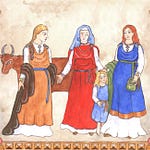

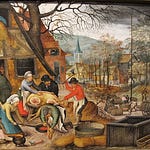
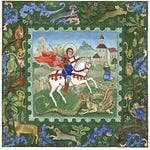



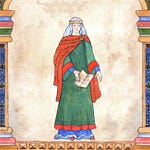
Share this post